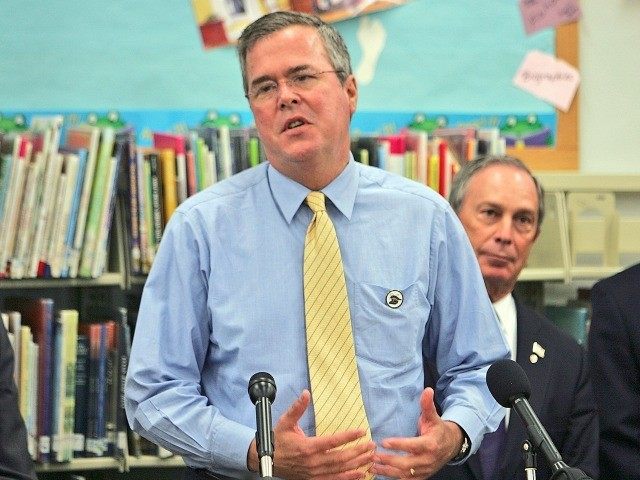If likely presidential candidate Jeb Bush was looking to distance himself from declared candidate Senator Rand Paul… well, mission accomplished.
During an interview on Michael Medved’s radio show on Tuesday, Bush heaped praise upon the National Security Agency’s harvesting of cell phone metadata on all Americans, crediting President Obama with expanding the program and maintaining it against fierce criticism from both Left and Right.
In fact, Bush described NSA surveillance as “the best part of the Obama Administration,” a vital component of homeland security that Bush thinks Obama is far too modest about claiming credit for. “Even though he never openly admits it, there has been a continuation of a very important service – which is the first obligation, I think, of our national government is to keep us safe,” said Bush. “And the technologies that now can be applied to make that so, while protecting civil liberties, are there. And he’s not abandoned them, even though there was some indication that he might.”
As The Hill points out, Senator Paul’s fiery opposition to these spying programs led him to sue the Administration over the bulk collection of phone records last year, while Senator Ted Cruz, who is also running for President, “co-sponsored legislation that would have dramatically scaled back the program by requiring the spy agency to first get a court order before obtaining records from private phone companies.”
Defending the government’s data harvesting programs isn’t new for Jeb Bush. “I’ve always been nervous about the attacks on the NSA, and somehow that we’re losing our freedoms by keeping the homeland safe,” he said on Hugh Hewitt’s radio show at the end of March.
In that interview, Bush faulted President Obama for fumbling his response to Edward Snowden’s revelations about the NSA programs. “The president has to lead, has to explain to people that he’s actually enhanced the intelligence capabilities in many ways, because the technology has gotten better,” said Bush. “But he never defends it; he never explains it. He never tries to persuade people that their civil liberties are being protected by the systems we have in place. If people knew that, I don’t think there would be any doubt that they’d want to have the ability to identify people from the outside that may be trying to coordinate with people on the inside.”

COMMENTS
Please let us know if you're having issues with commenting.